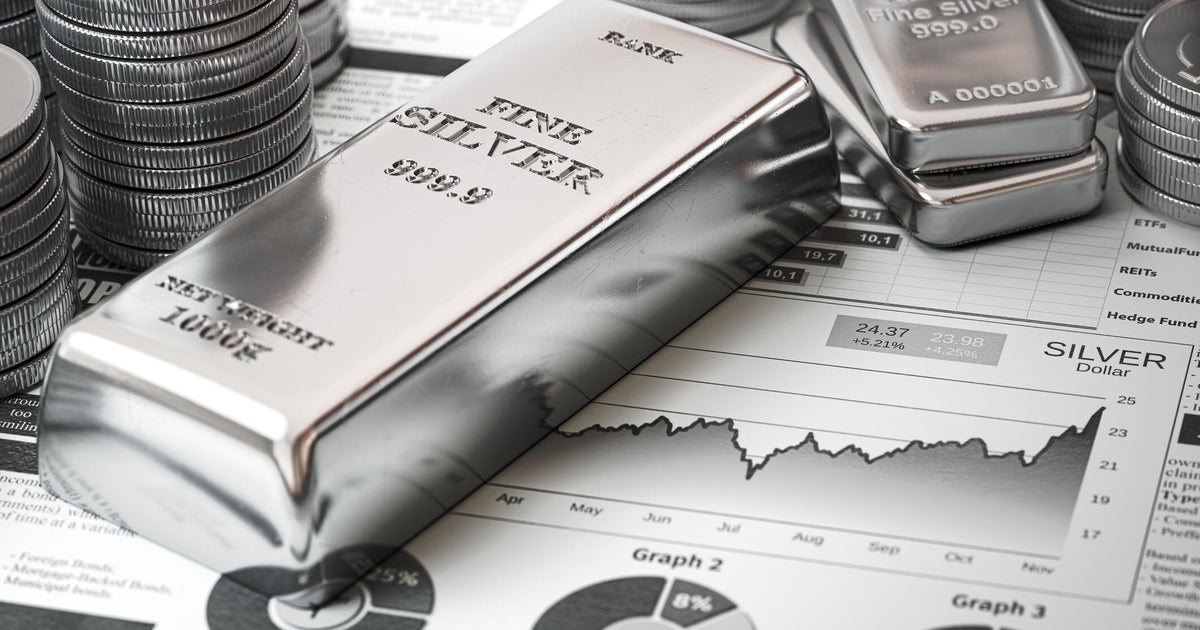Gold is regaining momentum — here's why
There have been numerous economic challenges causing turmoil this year, including persistent inflation, interest rate increases and a string of bank failures. However, the price of gold has remained resilient in the midst of the economic uncertainty, rising to over $2,000 per ounce and nearing the record high that was set in 2020.
Troubling economic circumstances often lead investors to turn to safer investments to stabilize their investment portfolios, hedge against inflation and provide a safe haven against more volatile investments — and that includes gold. Gold is also an attractive investment as a store of value with limited supply. But should you invest in gold?
Before you decide, it's essential to understand why gold prices are rising, where it might lead and the best times to invest in gold.
Learn more about how you can get started investing in gold with a free information kit today.
Gold is regaining momentum — here's why
Simply speaking, gold prices are rising because the demand for it is strong.
Frank Trotter, president at Battle Bank, has noticed two common themes when speaking with potential customers when it comes to the attractiveness of gold.
"First is the view that there has been no meaningful action by either political party to begin to slow down deficit spending, and the resulting accumulation of debt," says Battle. Continued spending could lead to more inflation — and more investors turning to gold to diversify their portfolios.
"Second, many people we speak with also believe that the current inflation numbers are either bad estimates or that they will begin to edge upwards again after the summer," says Battle.
Peter C. Earle, an economist at the American Institute for Economic Research, cites several additional contributors to rising gold prices, including the Federal Reserve's interest rate hikes and the potential for a recession — which typically favors hard assets like gold — along with increased gold purchasing by central banks.
Global instability is another contributor driving up gold prices.
"With the Russia-Ukraine War dragging toward a second year, the U.S. and China trading barbs over Taiwan and rumblings about de-dollarization, gold is reprising its ageless role as a hedge against geopolitical uncertainty," says Earle.
When is the best time to invest in gold?
While it's nearly impossible to time the market with any asset class, investors can look to past trends for indicators of the best time to invest in gold.
Inflation is one indicator, and the precious metal has performed well when interest rates are also high. For example, rates soared in the high-inflation era of the 1970s, from 5.84% in 1970 to 13.58% in 1980. According to Nasdaq, gold prices spiked from $35 per ounce to $850 per ounce over the same span.
GoldSilver has also noted that certain times of the year may be more advantageous to invest in gold. Their analysis of daily gold performance from 1975 and 2021 reports optimal buying periods in January, March, early April and mid-June to early July.
Still, nearly any time is appropriate to invest in gold, so long as it aligns with your financial plan and goals.
Is gold a good long-term investment?
As with other investments, gold prices fluctuate. Sometimes this fluctuation is more pronounced in the short term. Perhaps that's why many experts advocate for taking a long-term view toward gold investing.
Gold can be considered a good long-term investment as a value store that protects against market losses.
As Earle notes, "Many individuals who own gold aren't looking for market-beating returns. Rather, they know that there is a high likelihood that the purchasing power of the money they've converted to gold is likely to be safe from ruinous economic policies."
While gold can provide steady returns, the precious metal generally doesn't grow at the same rate as the stock market. Gold's foremost benefit is its ability to diversify your portfolio and preserve its value during financial uncertainty. Financial advisors often recommend limiting your gold investments to a maximum of 10% of your portfolio.
Learn more about the gold investment options available today.
Will gold prices go up in the next 5 years?
It's impossible to know with certainty where gold prices will be in the next five years. Still, it's worthwhile to examine the possibilities, including where to expect prices to go.
For example, forecasting service WalletInvestor anticipates prices rising to $2,165 by July 2028. Jeff Clark, senior analyst at GoldSilver has also published his price projections, which include a bullish price prediction between $3,000 and $10,000 in five years.
"I don't know if gold will rise over the next five years," says Earle. "I will say that if the way in which central banks have orchestrated monetary policy for decades continues, with a profound inflationary bias and generating systemic risk time and time again, gold has a very positive long-term future."
The bottom line
Gold's comeback this year has been largely driven by turbulent economic conditions like heavy deficit spending, inflation and elevated interest rates. Diversifying your portfolio with gold may help protect your wealth against economic and global turmoil and market volatility.
Before you invest, do your research and consult your accountant or financial advisor. If you decide to purchase gold, make sure to go through a reputable gold dealer.




